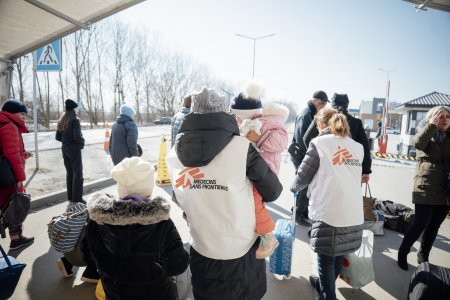 Peter Bräunig/MSF
Opinion
Peter Bräunig/MSF
Opinion
04/08/2022
Michaël Neuman
Thierry Allafort-Duverger
In a country with a solid medical infrastructure and faced with a large-scale international mobilisation, what is the place of MSF in Ukraine and beyond? "We are not currently in the front line of emergency care provision," write Thierry Allafort Duverger and Michael Neuman, who see our work in limited areas, particularly with those "left behind," and in the longer term.
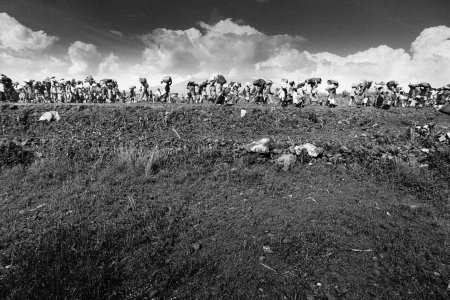 Remco Bohle
Review
Remco Bohle
Review
03/10/2022
Marc Le Pape
The film Empire of Silence, directed by Thierry Michel, examines the massacres committed in the Democratic Republic of the Congo from 1996 to the present. In this blog, Marc Le Pape introduces the film’s structure, some of the principal witnesses to the mass executions and some of the military and political actors responsible for them, and Congolese reactions to their impunity.
 Opinion
Opinion
10/27/2021
Mego Terzian
In his book, La Traversée. Une odyssée au cœur de l’Afrique, Patrick de Saint-Exupéry challenges the reality of Hutu Rwandan refugees’ hunt and massacre facing the advancement of the Rwandan Patriotic Army and their Congolese allies in 1996-97. This systematic exercise of denying reality – especially the denial of the Mapping Report written by the Office of the United Nations High Commissioner for Human Rights (1143 pages, published in June 2009) – but also this denial of Human Rights Advocacy groups’ investigations, and those of journalists’ witnesses present in DRC at the time – does not spare MSF’s teams who came to help these refugees in 1996-97. However, as a front-line witness of the Tutsi genocide in Rwanda, MSF was also one of the organizations noticing the intense violence perpetrated by the new Rwandan political regime in Zaire / DRC back in 1996 and 1997, mostly against a population constituted at three-quarters of women and children.
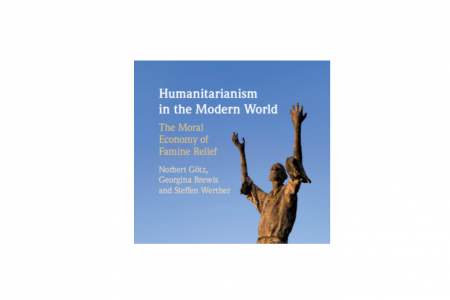 Cambridge University Press
Review
Cambridge University Press
Review
07/01/2021
Michaël Neuman
“Humanitarianism in the Modern World. The moral economy of famine relief” published by Cambridge University Press, is an open access book written by a team of three people, whose aim is to provide a history of contemporary humanitarianism through the prism of famines. Norbert Götz, Georgina Brewis and Steffen Werther are treading on fertile ground, as the number of publications on the history of humanitarianism has multiplied in recent years. However, the contribution they present here is rich and original.
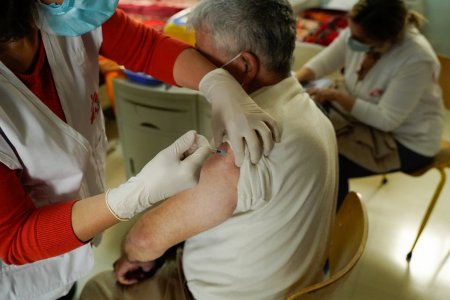 Mohamad Cheblak/MSF
Review
Mohamad Cheblak/MSF
Review
05/07/2021
Michaël Neuman
Natalie Roberts
We can all agree that the emergence of Covid-19 vaccine is “an absolutely astonishing development”, but vaccines are unlikely to completely halt the spread of the virus, let alone eradicate it. Yet even without achieving herd immunity, the ability to vaccinate vulnerable people seems to be reducing hospitalizations and deaths from Covid-19.
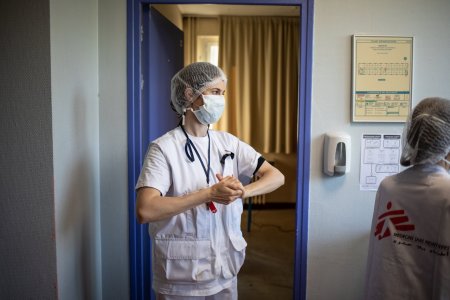 Agnes Varraine-Leca/MSF
Interview
Agnes Varraine-Leca/MSF
Interview
03/24/2021
Caroline Izambert
This article was published in Mouvements magazine on March 24, 2021. In the early spring of 2020, the humanitarian organization Médecins Sans Frontières (MSF) launched a mission in nursing homes in the Ile-de-France region, which had been hit hard by the Covid-19 pandemic. After considering the implementation of night-time palliative care, the organization finally decided to provide daytime support to the nursing homes in difficulty. Once the crisis was over in the summer, the MSF teams started offering mental health support to nursing home staff. A look back at this experience on September 28, 2020 with four members of the mission, Olivia Gayraud (project coordinator), Jean-Hervé Bradol (M.D. and CRASH1 member), Marie Thomas (psychologist) and Michaël Neuman (CRASH coordinator).
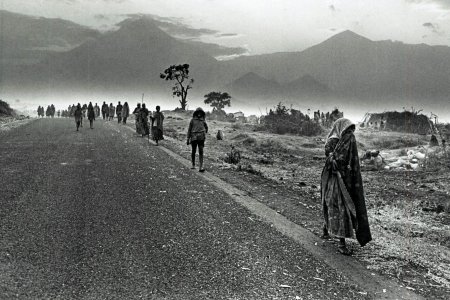 Sebastiao Salgado
Opinion
Sebastiao Salgado
Opinion
03/30/2021
Marc Le Pape
Jean-Hervé Bradol
There is a new book out by Patrick de Saint-Exupéry entitled La traversée. Une odyssée au cœur de l’Afrique [The crossing. An odyssey in the heart of Africa]. What odyssey? Crossing the Congo (Zaire, later the Democratic Republic of Congo) from Rwanda. The author describes his encounters, the beers he had here and there, the bumpy rides on the back of a motorcycle (to Kisangani), a trip down the Congo River, flying over the dense forest on his way to Mbandaka.
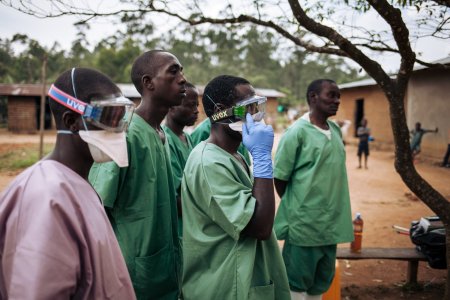 Alexis Huguet
Analysis
Alexis Huguet
Analysis
03/25/2021
Natalie Roberts
Within four months of the first notification of Ebola cases in August 2018, the Nord Kivu (and Ituri) Ebola epidemic had become the second-largest on record. Notwithstanding a rapid and massive mobilisation of resources, the outbreak continued beyond the most pessimistic predictions and the case fatality rate (the proportion of people with the infection who die from it) remained static at 66%. Despite numerous lesson-learning exercises following the Ebola epidemic in West Africa in 2014–2016, and despite the development of new vaccines and treatments, after 3,444 cases and 2,264 deaths it is difficult to claim that outcomes are better this time around.
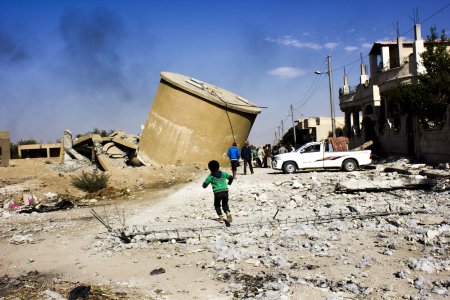 Diala Ghassan/MSF
Analysis
Diala Ghassan/MSF
Analysis
03/15/2021
Hakim Khaldi
This article was first published in Issue 2, Volume 2 of The Journal of Humanitarian Affairs.
How can a medical humanitarian organisation deliver emergency assistance in Syria when there is nowhere in the country where civilians, the wounded and their families, medical personnel and aid workers are not targeted? Not in the areas controlled by the government, nor in those held by the Kurdish Democratic Union Party (PYD), Islamic State of Iraq and the Levant (ISIL) or the different rebel groups. So what action could be taken, and how? Remotely or on site? At the very least, we had to decipher the diverging political and military agendas, and then adapt, persist or sometimes just give up. In this article, I will present the full range of methods used to acquire knowledge and obtain information as well as the various networks used to carry out this venture. I will also show how Médecins Sans Frontières’ operations became a balancing act, punctuated by episodes of adapting to the various difficulties encountered.
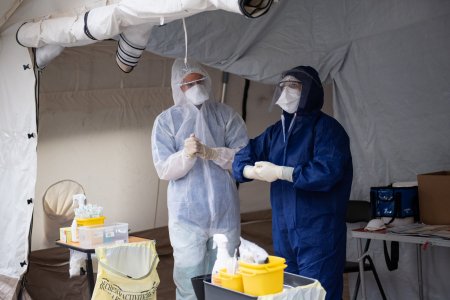 Clément Mahoudeau/MSF
Analysis
Clément Mahoudeau/MSF
Analysis
12/02/2020
Michaël Neuman
Emmanuel Baron
In this paper, the two authors examine certain aspects of the French response to the epidemic in the light of the experience of Médecins Sans Frontières (MSF) in that field, primarily with respect to the relationship between the actors of the response and the beneficiaries.
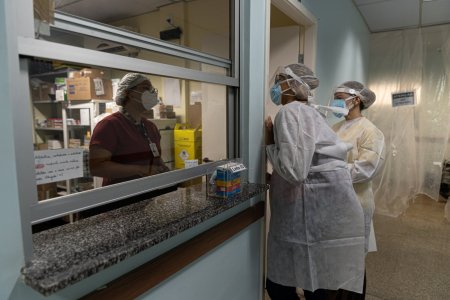 Mariana Abdalla/MSF
Opinion
Mariana Abdalla/MSF
Opinion
02/19/2021
Jean-Hervé Bradol
Isabelle Defourny
Blog written by Jean-Hervé Bradol, director of studies at the Crash.
Today, in order to obtain supplies of vaccines against Covid-19, there is neither a major difficulty related to price, nor a major obstacle related to intellectual property rules, nor a deficit in bio-medical research. However, these three topics are generally at the heart of MSF's communication in the area of access to medical care for those in most need. Our discourse must therefore evolve.
With the emergence of worrying variants of the virus present in the early stages of the pandemic and, as a consequence, the need to vaccinate on a global scale as quickly as possible, the world is facing a double challenge: biological engineering and ultra-industrial production – “ultra” echoing the need to produce on a global scale in a short period of time.
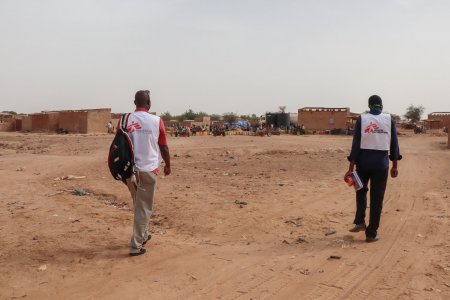 MSF
Analysis
MSF
Analysis
01/28/2021
Françoise Duroch
Michaël Neuman
In this article for the Humanitarian Practice Network, head of the Research Unit on Humanitarian Stakes and Practices (UREPH) for MSF Geneva Françoise Duroch and Crash director of studies Michaël Neuman discuss the implications and reasons behind the growing practice of staff profiling for MSF.
In October 2020, MSF organised a workshop in Dakar on staff profiling in operations in the Sahel. Profiling involves the selection of staff based on non-professional criteria, including nationality, skin colour, gender and religion. As such, it raises a number of ethical and practical concerns. As a result of profiling, US nationals have not been deployed in MSF operations in Colombia because of the risk of kidnapping, and Chadians and Rwandans have been excluded in the Central African Republic and eastern Democratic Republic of Congo respectively, because of regional conflicts. The use of profiling has increased in recent years in West Africa, as the threat of kidnapping of Westerners by radical jihadist groups has intensified.
 Peter Bräunig/MSF
Opinion
Peter Bräunig/MSF
Opinion










